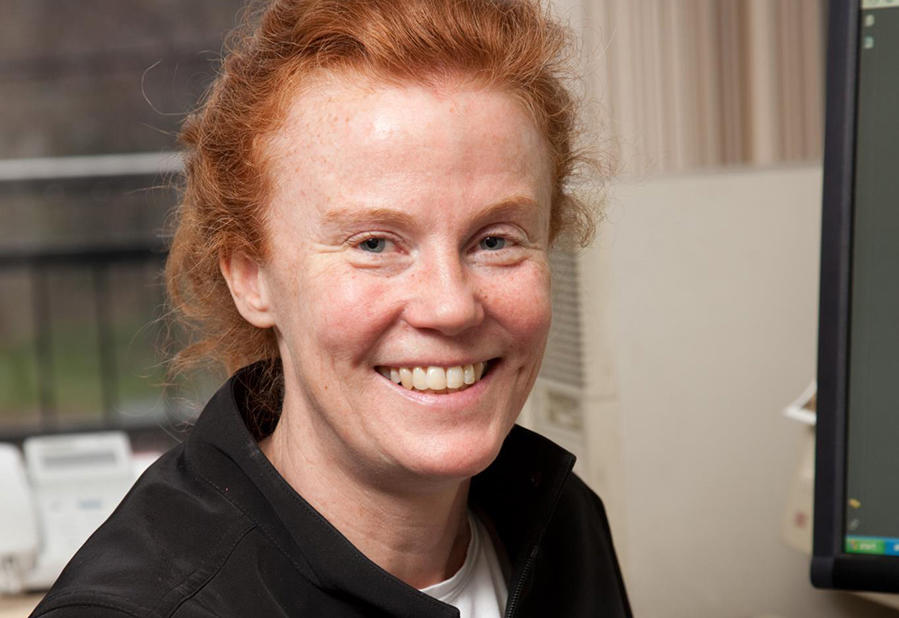A New Web-Based Study of Low-Grade Gliomas
, by Brittany Cordeiro, NCI-CONNECT Program Manager
Oligodendrogliomas are rare primary central nervous system tumors with an estimated 1,217 people diagnosed each year. To improve treatment for patients with oligodendrogliomas, Elizabeth B. Claus, M.D., Ph.D., professor and director of Medical Research at Yale University School of Public Health and a neurosurgeon in the Department of Neurosurgery at Brigham and Women’s Hospital (BWH) in Boston, has created a web-based registry for patients with low-grade gliomas (LGGs), a group of tumors that includes oligodendroglioma, called The International Low Grade Glioma Registry.
The Inception of the LGG Registry
Dr. Claus trained as a neurosurgeon at Yale New Haven Hospital and completed a fellowship in neurosurgical oncology at BWH. Her clinical expertise is in the treatment of glioma, meningioma, and brain metastases. Dr. Claus's research is focused in cancer and genetic epidemiology with an emphasis on the development of risk models for breast and brain tumors. She has served as the overall principal investigator of the Meningioma Consortium and the Meningioma Genome-Wide Association Study, as well as as a co-investigator of the GLIOGENE (Genes for Glioma) and International Glioma Case/Control (GICC) projects. More recently, Dr. Claus has turned her attention to the study of low-grade gliomas.
“My interest in LGG and oligodendroglioma began during my fellowship at Brigham and Women’s Hospital. During that year, most of my time was spent operating on patients with LGG using the BWH Magnetic Resonance Intraoperative Suite and studying the ability of such technology to improve outcomes for patients with LGG,” says Dr. Claus. “And despite advances in surgical techniques and improvements in diagnostic classification, the management of LGG tumors, such as oligodendroglioma, remains one of the most controversial topics in neuro-oncology.”
The good news, Dr. Claus explains, is that the development of secure web- and smartphone-based research tools, as well as partnerships with patient organizations, allows scientists to enroll patients on research projects and share the results with them with greater ease. With funding from the American Brain Tumor Association, National Brain Tumor Society, and LOGLIO Collective, Dr. Claus developed the LGG registry.
The overarching goal of the registry, which seeks to enroll a minimum of 2,000 low-grade glioma patients, is to allow for focused study of low-grade gliomas to develop effective treatments. Currently, patients are enrolled from 21 states and nine countries.
What the LGG Registry Hopes to Achieve
One goal of the registry is to learn more about LGG cells. “An understanding of the evolution of the LGG genome will help identify and characterize the glioma cells driving resistance to treatment—knowledge that will be important for the development of and optimal timing for effective therapies,” says Dr. Claus.
Her research team is also interested in measuring the impact of treatment on quality of life and neurocognition. “Patients with oligodendroglioma are typically young when diagnosed—the average age is 41—and survive a long time, making quality of life, neurocognition, and reducing fatigue all important clinical goals,” says Dr. Claus. Yet, very little is known about the impact of treatment, particularly radiation therapy, on patients’ ability to return to work, drive, and participate in their usual activities.
In addition, because oligodendrogliomas are rare tumors, it's challenging to recruit patients to participate and provide access to the project. “That is why NCI-CONNECT is so important for oligodendroglioma,” says Dr. Claus. “Its partnership with our registry, as well as with other researchers and patient organizations with an interest in oligodendroglioma, is key to the successful study of this disease. NCI-CONNECT provides a supportive centralized mechanism to keep patients apprised of opportunities to join new or ongoing studies, as well as to support researchers in their efforts to reach patients, gather and share data, and form new collaborations. We look forward to working with NCI-CONNECT to help support patients with oligodendroglioma.”
